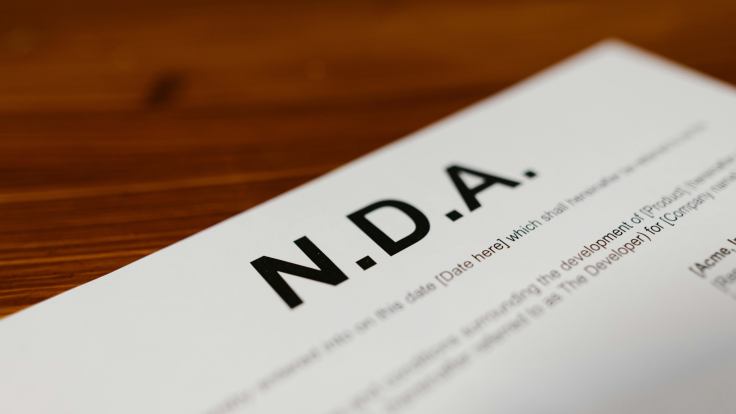Long-Awaited UK Ban on Workplace NDAs Used to Silence Abused Employees Set to Take Effect
The NDA ban will allow victims and witnesses of workplace abuse and discrimination to speak out without the threat of being sued.

The UK Government is set to ban non-disclosure agreements (NDAs) from being used by bosses to silence employees subjected to harassment and abuse.
The long-awaited ban will come through as an amendment to the Employment Rights Bill, the Government outlined in a press release on Thursday.
Changes to the bill will void NDAs set by employers against employees who have suffered workplace harassment and discrimination, protecting workers and stopping victims from suffering in silence.
The discussion around banning NDAs used for this purpose began during the #MeToo movement.
Zelda Perkins, former PA to American film producer Harvey Weinstein, shed light on the misuse of NDAs in 2017 when she broke her non-disclosure agreement to expose how Weinstein used the contracts to silence his victims.
'We have heard the calls from victims of harassment and discrimination to end the misuse of NDAs,' Deputy Prime Minister (DPM) Angela Rayner said. 'It is time we stamped this practice out – and this government is taking action to make that happen,' she added.
Notable Problems With NDAs
Non-disclosure agreements are contracts that were originally designed to protect company secrets when an employee shifts workplaces.
Employees would sign an NDA so they could discuss confidential information in the company without their boss having to worry about those secrets later getting leaked.
However, NDAs have since been used by powerful figures and companies to keep employees silent about horrific experiences in the workplace.
Harvey Weinstein, Donald Trump, and Sir Philip Green are all famously believed to have used NDAs, AKA 'hush agreements,' to keep sexual harassment victims quiet.
But it's not just rich and powerful men abusing these contracts.
In 2020, the BBC found that 300 students across the UK's 136 universities had signed NDAs after complaints since 2016. Students' complaints varied from sexual assault to bullying to poor teaching.
NDA Ban Will Allow Victims To Speak Out
If amendments to the Employment Rights Bill are passed, confidentiality clauses designed to stop workers from speaking out against workplace harassment or discrimination will be null and void. The bill is set to be returned to the Lords next week.
'The misuse of NDAs to silence victims or harassment or discrimination is an appalling practice that this government has been determined to end,' Employment Rights Minister Justin Madders said.
'These amendments will give millions of workers confidence that inappropriate behaviour in the workplace will be dealt with, not hidden, allowing them to get on with building a prosperous and successful career,' he added.
Banning these NDAs won't just affect abused and harassed workers, but also witnesses of workplace harassment and discrimination. They, too, will be able to call out this type of behaviour and publicly support victims without the threat of being sued.
'The Employment Rights Bill will ban any NDA used for this purpose, so that no one is forced to suffer in silence,' the DPM said.
Call For Change Spearheaded by Zelda Perkins
Weinstein's former PA, Zelda Perkins, co-founded the campaign group 'Can't Buy My Silence,' which has been pushing for the ban of NDAs used for nefarious purposes for years.
Upon the UK Government's announcement of banning these types of NDAs, Perkins said:
'This is a huge milestone, for years, we've heard empty promises from governments whilst victims have continued to be silenced, to see this Government accept the need for nationwide legal change shows that they have listened and understood the abuse of power taking place.
'Above all though, this victory belongs to the people who broke their NDAs, who risked everything to speak the truth when they were told they couldn't. Without their courage, none of this would be happening.'
She concluded, 'This is not over yet and we will continue to focus closely on this to ensure the regulations are watertight and no one can be forced into silence again. If what is promised at this stage becomes reality, then the UK will be leading the world in protecting not only workers but the integrity of the law.'
© Copyright IBTimes 2025. All rights reserved.





















